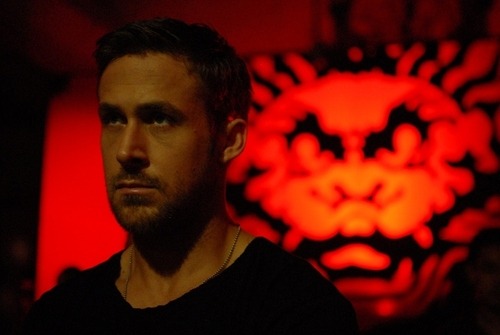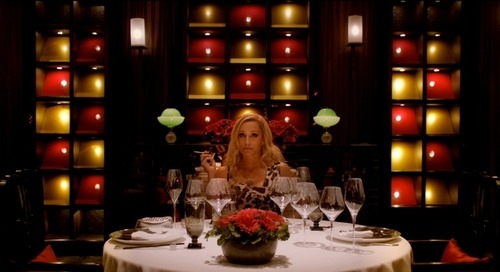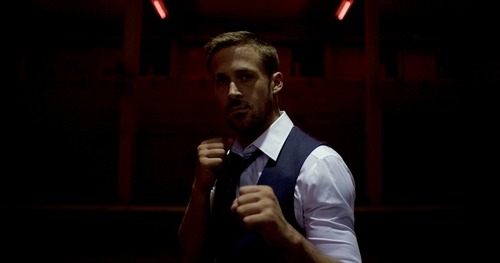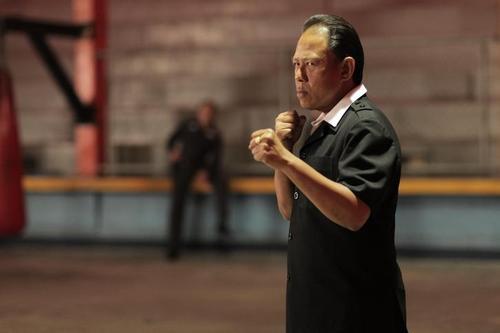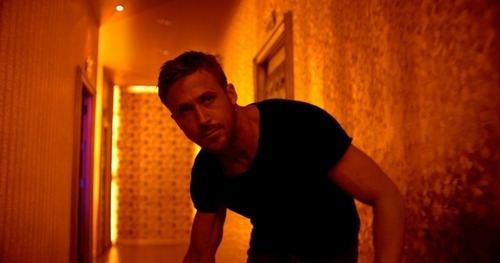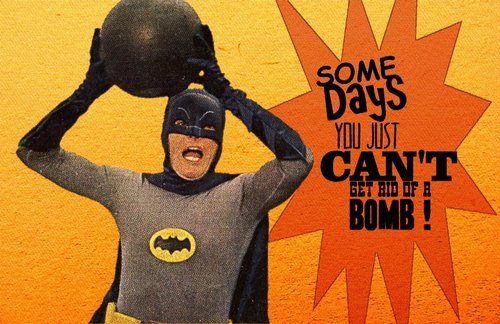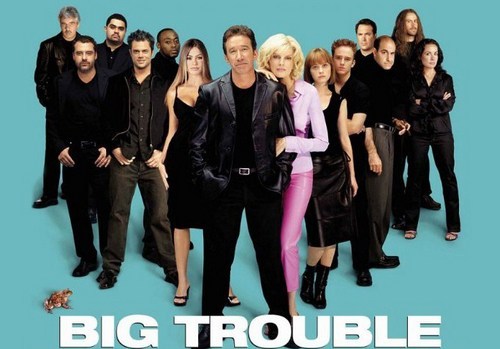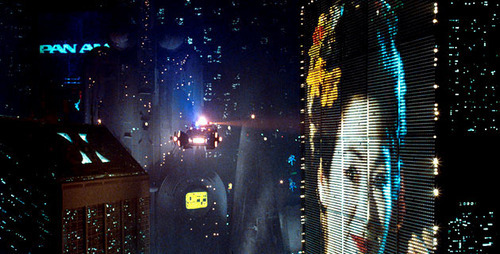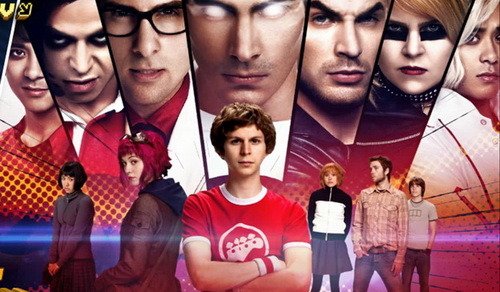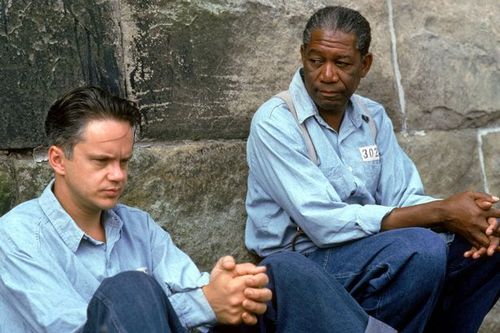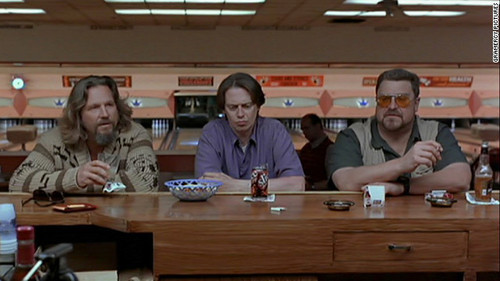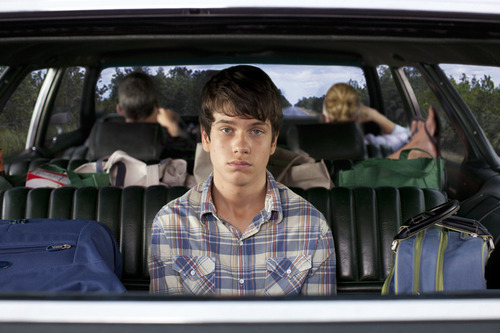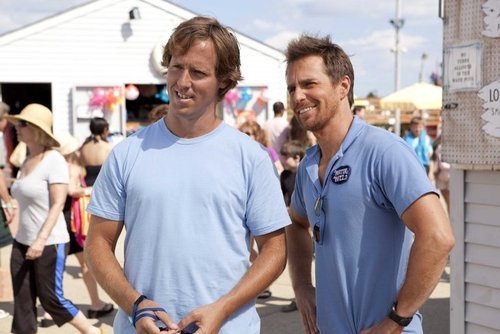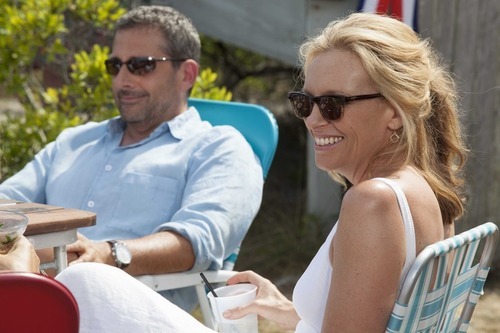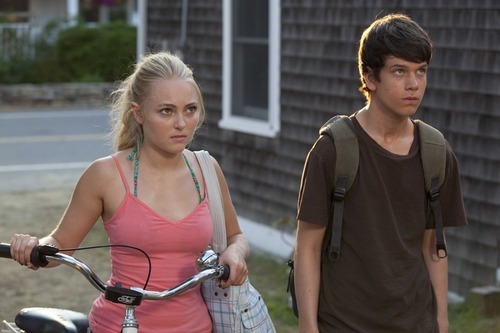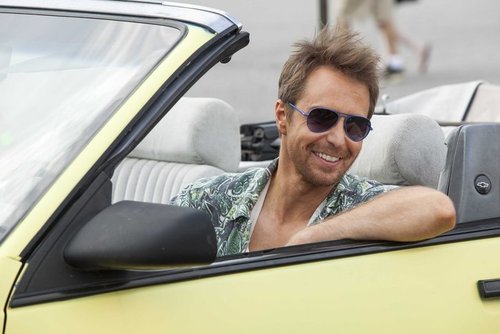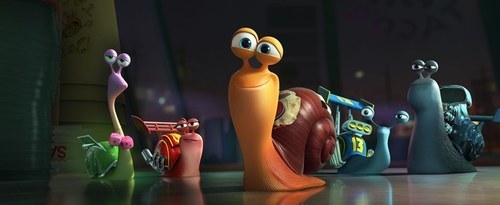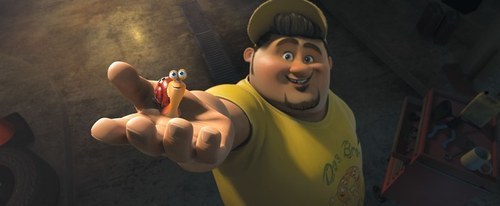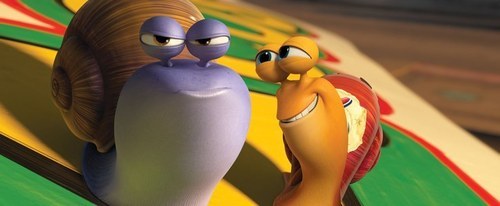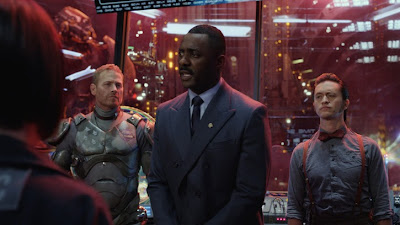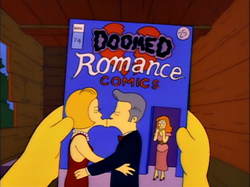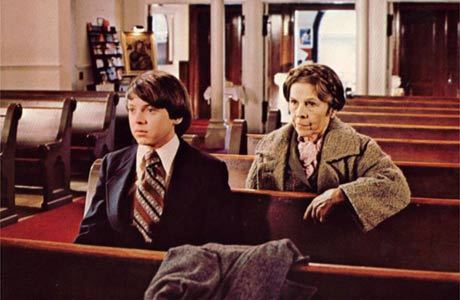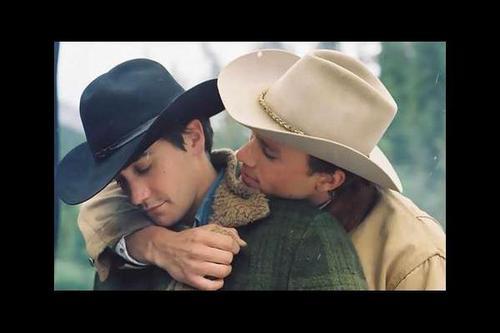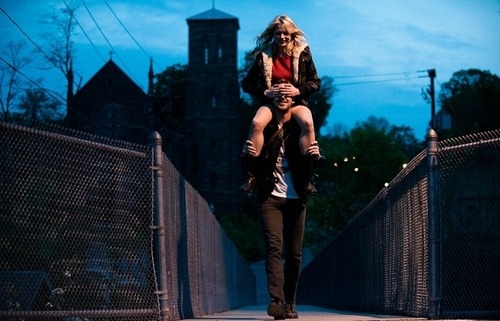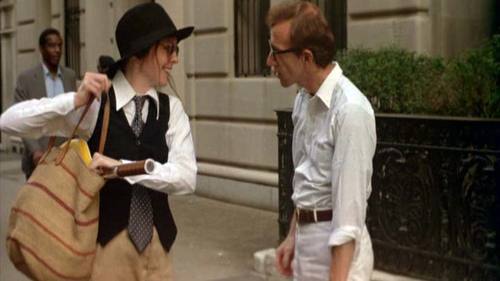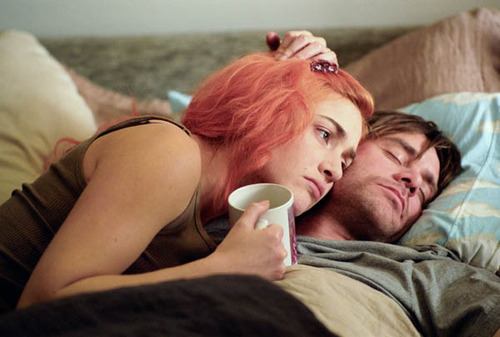"You're gonna have my ass? Don't be such a cliche."
In a summer filled with high concept, big budget fare, R.I.P.D. somehow managed to fly almost completely under the radar. The advertising campaign for the film was admittedly lousy (I think I only saw a trailer for this film once in all my trips to the movies) and they seemed to be trying to sell it as Men in Black-lite. While the film certainly takes great, often unnecessary, strides to differentiate itself from that franchise, R.I.P.D. is a much better film than I would have given it credit for based on the advertisements.
Nick Walker (Ryan Reynolds) is a good cop who did a bad thing. He stole some gold pieces from a crime scene, along with his partner Hayes (Kevin Bacon). En route to a major drug bust, Nick has a change of heart and tells Hayes he's going to turn in the gold to evidence, and at the bust, Hayes guns Nick down in cold blood. In what is, visually, the coolest sequence in the film, Nick walks through the crime scene, frozen in time, and then floats up to the sky. He is intercepted from the white light, however, and brought to what appears to be a police holding room. Here he is given an offer by Proctor (Mary-Louise Parker) that he can either take his chances with his impending judgment, or help boost his afterlife stock a bit by serving as a cop of sorts, hunting down "deados," or people who've escaped judgment and are hiding out on Earth.
When told that his beat will be Boston, the city where he lived, Nick decides to take the offer, in hopes of setting things right from beyond. He is then partnered with Roy (Jeff Bridges) a salty old west sheriff, who reluctantly agrees to show Nick the ropes. Nick sets out to make things right with his still living wife (Stephanie Szostak) and protect her from Hayes, who seems to be on a quest to find Nick's gold. As Roy & Nick dig deeper, they uncover a vast conspiracy that may lead the dead to try and take over Earth.
When they go back to Earth, they're given avatars to disguise what they're really there to do. In a bit that's both inspired, and somehow underused, Nick's avatar is an old Chinese man (James Hong) and Roy's is a hot blond (Marisa Miller). Whenever they brandish their guns, still living people see them as holding a banana or a hair dryer respectively. It's a brilliant sight gag, and one that's not exploited to death, which was a real surprise. The film does suffer from far too many hackneyed plot devices and tropes of the genre (for example, if I have to sit through one more "the bad guy gets himself captured on purpose" plot point, I'm going to vomit). But it does have enough originality to keep things moving for just over ninety minutes, which means it doesn't have time to overstay its welcome.
The biggest issue with the film, however, were the visual effects. The film just looked cheap. There were some bits that looked okay, but overall, the effects never rose to a level of even mediocre believability. The budget for the film is listed at $130 million dollars, but I can't see any of that up on screen. Director Robert Schwentke, known for his similarly middle of the road fare like Flightplan & Red, adds some nice visual flourishes to the film, but whenever a human would turn into a "deado," the rendering of those characters was truly bad.
The biggest asset the film has, by a mile, is Jeff Bridges. Playing a more overtly comedic version of his Rooster Cogburn from 2010's True Grit, Bridges appears to be the only actor with a sense of how much fun the movie around him could have been. He goes for broke here, and it pays off handsomely as he almost single-handedly carries the film. Reynolds has a detachment here that has almost become his stock in trade, and it makes his character that much weaker as a result. Instead of being the audience's in to this strange world, he seems equal parts oblivious and incredulous, and never allows himself to give in to the film the way Bridges does.
Bacon is another actor that seems to just be cashing a paycheck as of late. He's perfectly serviceable as the film's antagonist, but he just doesn't seem to give a shit about anything, and it really shows. Parker manages to add some levity to her character and makes her a bit more than a cliched police chief, which is what the role was very clearly designed to be. I was sad though when her bit with Steely Dan music playing in the holding room at the beginning of the film went nowhere. It could have been a great running gag for her, but the filmmakers seem to have lost interest.
If this were a world where Men in Black didn't exist, more people would probably have gone to see R.I.P.D. and it might have made more of a dent at the box office. I honestly think it's as good a film as the first MIB film, and could only have benefitted from better second and third lead actors and better visual effects. I wouldn't run right out and see R.I.P.D. but if it's on cable some time, or you can see it at the dollar theater, it's a solid time waster and will provide you with more than a handful of chuckles. Saddest of all, that's honestly more than I can say about virtually any other film that's in wide release at the moment.
[Images via BoxOfficeMojo]





